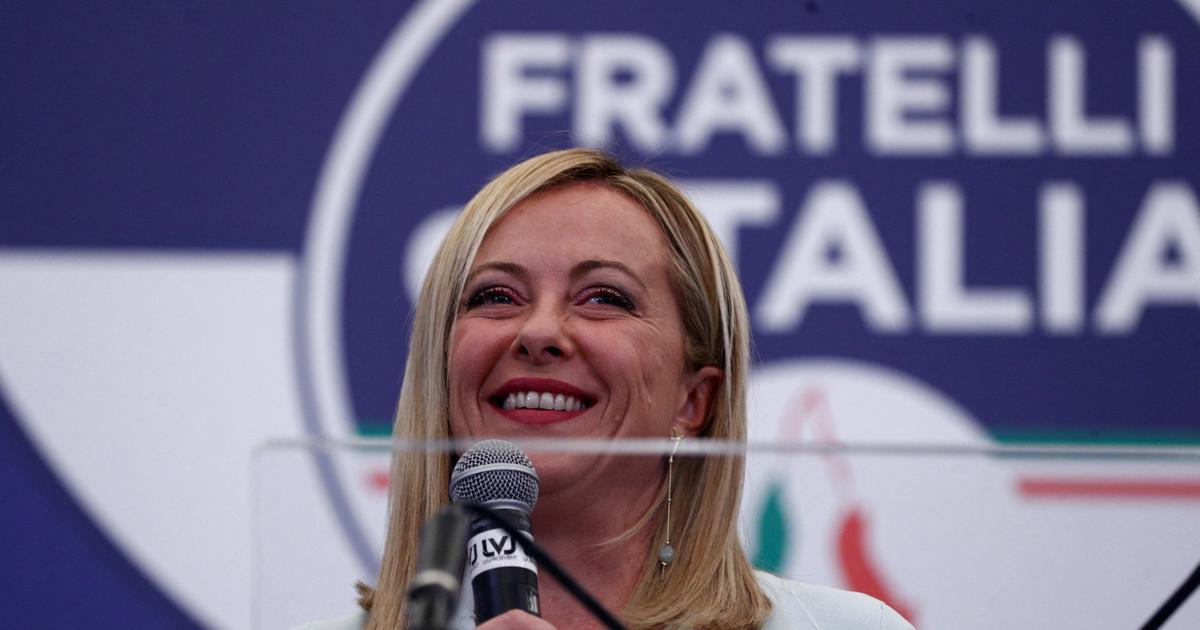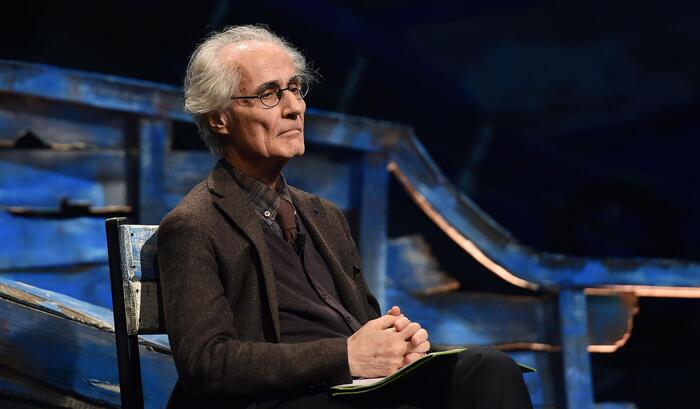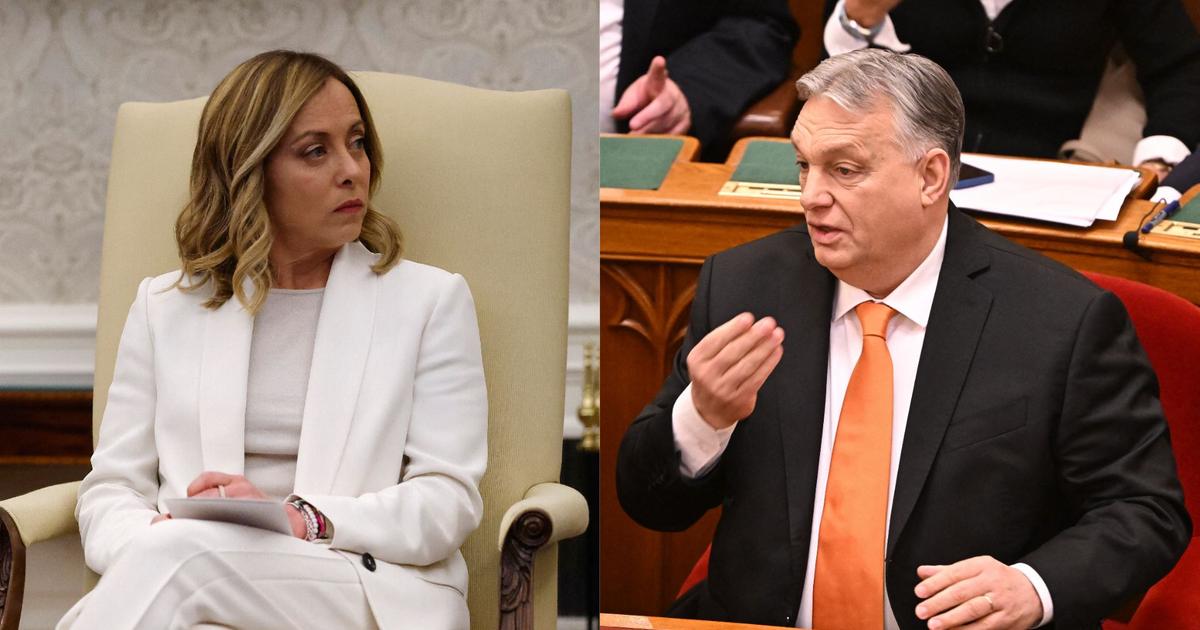Frédéric Le Moal is a doctor in history and a teacher at the Saint-Cyr military school. He is the author, in particular, of
Victor-Emmanuel III.
A King Facing Mussolini
(Perrin, 2015) and
History of Fascism
(Perrin, 2018), Ernest Lemonon Prize from the Academy of Moral and Political Sciences.
LE FIGARO. - The adjective “postfascist” is used by many media to qualify Giorgia Meloni. What does this name mean to you?
Frederic LEMOAL. -
A certain skepticism, I must admit because it is likely to confuse the political debate, even to imprint an infamous mark on Giorgia Meloni.
Indeed, this expression makes it possible to chain it to fascism despite the political evidence that is obvious!
Admittedly, Giorgia Meloni's political career links her to the ghost of fascism.
First by his declarations of youth in favor of Mussolini, of which his adversaries, in the political and media world, make immoderate use.
The same, it should be noted, that we find much less vigilant when it comes to the Trotskyist or Maoist past of certain personalities.
Then by the political evolution of his party, resulting from a split from Alleanza Nazionale, itself heiress of the MSI which, for its part,
unambiguously claimed fascism of the Republic of Salò, a radical, republican, socialist and Jacobin fascism.
This incessant mutation by dint of demonization and purification of radical elements, prohibits linking "melonism" to fascism.
She is not post-fascist but conservative, sovereignist and patriotic.
The victory of Fratelli d'Italia constitutes a democratic and conservative response to the crisis of a globalization that destroys national identities and to the challenges of uncontrolled immigration.
Frederic Le Moal
Beyond partisan filiation (Fratelli d'Italia being the heir of the national alliance, himself the heir of the Italian social movement MSI, a fascist party), can we establish an ideological filiation between the program of Giorgia Meloni and that of Mussolini's fascism?
Giorgia Meloni is liberal in economics – and as such hostile to the influence of the State –, assumed Catholic, with a conservative vision of society, and she leads an identity fight above all defensive.
There is therefore nothing in common with fascism, a statist ideology uniting socialism and nationalism, totalitarian because carrying a project of anthropological revolution whose objective was to give birth to a new Italian, exalting violence and war. , founding act of a new hard and cruel Italian people because rid of the values considered softening of Christianity.
It was a revolutionary, anti-communist and anti-liberal response to the crisis in which Italy had been struggling since the end of the First World War, through physical and extra-parliamentary violence.
Read alsoMarc Lazar: “In Italy, there is no ban on an alliance between the rights”
We often come out with these words from Giorgia Meloni in 1996: I believe that Mussolini was a good politician. Everything he did, he did for Italy". What is the perception today of Mussolini in Italian public opinion? Is the fascist heritage less rejected in Italy than is the Vichy regime in France or Nazism in Germany?Why?
Italy never knew the memorial enterprise of expiation that Germany set up after 1945. Even the figure of Mussolini does not arouse a universal aversion to the image of that of Hitler.
His body rests in the Italian soil of his village of Predappio, where crowds of curious people but also pilgrims go, not hiding the admiration they feel for the Duce, whose only mistake would have been to ally himself with the Third Reich.
The reasons for this situation in many respects singular?
The absence of an Italian Nuremberg, the will of the post-war Italian elite to turn the page, the fragile but indisputable social and economic successes of the regime, the solid popularity of the dictator who was the object of
an almost religious adoration on the part of several strata of Italian society which over the years has become truly Mussolini, if not fascist.
It took the racial laws of 1938 and especially the defeats of the war to break the link.
Let us not forget either that the regime, however violent it was, never reached the degree of horror of Communism and Nazism.
This absence of cruelty therefore allows many people to defend a nuanced image of the dictator.
In the end, in a weakened Italy, governed by an unstable parliamentarism, the fascist regime embodies lost stability and power.
It took the racial laws of 1938 and especially the defeats of the war to break the link.
Let us not forget either that the regime, however violent it was, never reached the degree of horror of Communism and Nazism.
This absence of cruelty therefore allows many people to defend a nuanced image of the dictator.
In the end, in a weakened Italy, governed by an unstable parliamentarism, the fascist regime embodies lost stability and power.
It took the racial laws of 1938 and especially the defeats of the war to break the link.
Let us not forget either that the regime, however violent it was, never reached the degree of horror of Communism and Nazism.
This absence of cruelty therefore allows many people to defend a nuanced image of the dictator.
In the end, in a weakened Italy, governed by an unstable parliamentarism, the fascist regime embodies lost stability and power.
The strength of left-wing anti-fascism has been to erase all traces of its links with Mussolini.
Frederic Le Moal
In your book "History of Fascism", you make fascism a revolutionary movement, and even heir to the Enlightenment... would you say that fascism is a movement as much of the left as of the right?
I see in fascism a movement reconciling the socialism from which most of its leaders come with nationalism.
The shift to the right of the blackshirt movement from 1921 is irrefutable but should not mislead us.
Nationalist, anti-Communist, Darwinian, brutal, expansionist colonizer: fascism was all of these, but these elements do not allow it to be classified on the right.
Le Duce himself affirmed it without any ambiguity:
“I refuse to qualify as right-wing the culture which my revolution has given rise to.
Fascist culture, which recovers the values of the entire Italian 19th century, is not of the right”
.
The nation and the revolution: it is from this marriage that fascism was born.
In truth, fascism brought about the reconciliation of the national idea with the revolutionary project of creating a new state and a new man.
We thus find this demiurgic temptation of transformation of the human being, which prevents us from classifying it on the right.
For the simple and good reason that the real border separates those who believe in the inalienable nature of the individual and those who do not believe in it and therefore want to change it to improve it.
Fascism unambiguously falls into the second category.
"The belly is still fertile, from which the filthy beast has arisen": the last words of Brecht's play in the 1930s still haunt our times. How do you explain that the return of fascism obsesses our time, which applies this noun to any radical right movement?
For several reasons, in my opinion: the maintenance of the Marxist analysis which sees fascism in any movement hostile to it, the strength of cultural leftism in schools, universities and in the media, the mobilizing power of the fight against a frightening ideology, the ever-present need on the left to have an enemy against which to fight, an enemy all the more convenient because he has in fact disappeared and is not in danger of ransacking the seats of political parties and newspapers like the black-shirted thugs did.
In fact, the strength of left-wing anti-fascism has been to erase all traces of its ties to Mussolini, a former leader of the Italian Socialist Party, and to place fascism on the most extreme, conservative and most extreme right. reactionary.
What he never was.
Here we are faced with a mixture of ignorance and militancy.














